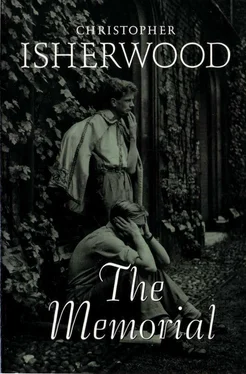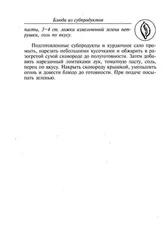Balefanio - tmp0
Здесь есть возможность читать онлайн «Balefanio - tmp0» весь текст электронной книги совершенно бесплатно (целиком полную версию без сокращений). В некоторых случаях можно слушать аудио, скачать через торрент в формате fb2 и присутствует краткое содержание. Жанр: Старинная литература, на английском языке. Описание произведения, (предисловие) а так же отзывы посетителей доступны на портале библиотеки ЛибКат.
- Название:tmp0
- Автор:
- Жанр:
- Год:неизвестен
- ISBN:нет данных
- Рейтинг книги:4 / 5. Голосов: 1
-
Избранное:Добавить в избранное
- Отзывы:
-
Ваша оценка:
- 80
- 1
- 2
- 3
- 4
- 5
tmp0: краткое содержание, описание и аннотация
Предлагаем к чтению аннотацию, описание, краткое содержание или предисловие (зависит от того, что написал сам автор книги «tmp0»). Если вы не нашли необходимую информацию о книге — напишите в комментариях, мы постараемся отыскать её.
tmp0 — читать онлайн бесплатно полную книгу (весь текст) целиком
Ниже представлен текст книги, разбитый по страницам. Система сохранения места последней прочитанной страницы, позволяет с удобством читать онлайн бесплатно книгу «tmp0», без необходимости каждый раз заново искать на чём Вы остановились. Поставьте закладку, и сможете в любой момент перейти на страницу, на которой закончили чтение.
Интервал:
Закладка:
Yet his eyes had filled with tears. As the carriage climbed the slope of the road to the canal bank,
he felt all round him the heavy voluptuous sadness of the summer day brooding over the glittering hills. It was in his blood, in his stomach, in his brain; a cloudy, apprehensive sadness. Eric was going through a phase of nostalgia for his childhood. The present seemed mere chaos, cumbered with the inefficiency of his three-quarters grown body and half-developed intellect. He brooded over the shapes of the hills. He had discovered that they resemble breasts. Eric wrote poetry, mostly sonnets, in a small black book which he usually carried about with him, when at home, for fear his mother should find it. They were all about Nature.
One of his black socks had a hole in it; the roughness of his school trousers itched against the inside of his knee. He thought of school, where life was so difficult for him, so full of worries and anxieties, not to be late for work or games, not to leave his clothes lying about the changing-room, not to do any of the things which made people laugh at him. He got along all right if he gave his mind to it. He wasn't quite a figure of fun. But at the beginning of each new term he felt quite physically sick with worry. He would be glad when it was all over for good.
One day, thought Eric, I suppose I shall go to Cambridge. He knew nothing about Cambridge, but supposed it must be very different from school. Suddenly he had a brilliant idea. If I worked very hard there, I might become a don. He saw himself,
an august, robed figure, lecturing: "And fifthly, gentlemen . . ." The thought pleased him. He grinned.
But I shall never be a don, he reflected, if I can't cure my stammer and learn to be tidier, The thought filled him with despair. But he made a resolution to himself. He would cure the stammering and he would be tidier. It was quite possible. Only he forgot. He was always mooning. At school, his friends helped him to overcome this tendency with occasional hard kicks on the bottom. "Mooning again," they reminded him kindly, without malice.
He could cure the stammering if he counted before speaking and always thought out beforehand exactly what he was going to say. And he would take trouble over his appearance and buy some brilliantine for his hair. But at that idea, a curious feeling of shame came over him. He didn't like to think of himself with his hair brushed and his tie carefully tied, wearing smart clothes. Maurice's hair was always as smooth as silk. But I'm ugly, thought Eric, with a certain fierceness. It's idiotic for me to make any sort of effort. I'm hideous.
And at this picture of himself, so ugly, clumsy, so inept at all the things in which he would have liked to excel—tennis, conjuring-tricks, juggling with oranges, doing stunts on a push-bike, ping-pong, card-games, understanding machinery— made only the more conspicuous in his failure by
his stupid "cleverness" at History—at this picture Eric frowned with hatred and felt capable of doing something violent and dangerous, like riding Gerald's Indian all out, and not caring whether he got really seriously hurt.
His mother's eyes met his, and she smiled.
"Don't sit so hunched up, darling. You'll get round-shouldered."
She thinks I'm still a child, Eric thought. Darling Mother, she doesn't understand me in the very least. I suppose she'll always treat me as though I was still nine or ten.
He looked into Lily's eyes, so clear, so liquid. Their beauty filled him, as so often, with vague remorse. Darling Mother, I'm unfair to her. I'm always being unfair to her, and filthily selfish. I'm always forgetting what she must suffer. How awful life must be for her. I'll look after her always and make things as nice for her as I can.
This afternoon, Eric suddenly decided, I won't go over to Aunt Mary's. I'll stay at home. It was perfectly beastly of me even to think of going out today, just after this. I'll read to Mother or go for a walk with her. I'd much rather do that than go to Aunt Mary's, anyway. No, he couldn't pretend that to himself, not quite. I'm going to stay at home, at any rate, he decided. Eric began to form with his lips the word "shall"—shall we go for a walk this afternoon, Mums?
But he remembered that he must count before
speaking; and then, because that seemed too much trouble, he settled it that he would ask her later on, when they were alone.
Father had been killed while Eric was at school. This was his first year as a public school boy, and the telegram, with Mother's letter following it, had seemed merely to add the darkest tinge to an already melancholy life of war rations, fagging, loneliness, discomfort, strangeness.
Eric had respected his father, but had never been more than fond of him. Lily had claimed all his love, since the days when she had come into the nursery in her evening dress with spangles and picked him out of his cot before going out to a dinner-party. "Whose little boy are you? Are you Mummy's little boy? Are you?" Her kisses were rich with scent. And Father was only a figure in the doorway, a white boiled shirt-front surrounded by blackness, who said: "Good-night, old man. Darling, it's twenty past." Father was grave and kind. He took Eric out for walks when they came up to stay with Grandad, and told stories out of books in his careful solicitor's voice. The carriage was passing the lock gates now. Eric could remember just how the weather vane on the church tower above the trees had looked as Richard had begun to tell him about Sherlock Holmes. "Who was Sherlock Holmes, Daddy?" "Sherlock Holmes was a detective." "What's a detective, Daddy?" "If you'll listen, you'll hear."
Eric was very, very sorry to hear that his father had been killed. The news added poignantly to his sense of desolation in the midst of the great school. It sharpened the misery of hearing the ugly jangling morning bell, of washing in cold water, of jostling downstairs to work. It seemed that his father's death was in some way connected with the school. That the school was responsible for it, as it was responsible for the bell, the water and the work. The mornings were cold and raw, like reiterated sips of death. The dismal, untidy boot-room, the iron staircase, the bare dormitories, the stuffy little box of a study with the high weak electric light and thick blind which you got six for forgetting to draw—because of air-raids—and the soaked playing-fields and dusty class-rooms and icy-cold chapel—all seemed the atmosphere and scene of Death. For a week, Eric was almost intolerably unhappy, for a week only just less so, for a week still very miserable. Then he knew that he could bear it. It was no better, but he was stronger.
The days were lengthening. He wrote home three times a week, and his letters became more hopeful. They were full of comforting phrases. He almost sermonised to his mother, and indeed did actually repeat to her phrases from sermons in the school chapel about the War and the Fallen. He told her items of school news. And he felt sure that his consolations must be taking effect, because Lily's letters became shorter, less personal and
more chatty. She in her turn told him news of Chapel Bridge affairs. The weather became beautiful. It was the end of the term. Father was dead. No longer, in Eric's mind, stood the stark word "killed." He was dead. Everyone told you that he was happy. Eric believed it. It seemed as though his father had never been alive, but was always, as now, an honourable, benign figure of legend. It made Eric cry sometimes to think of him, but only as music made him cry—a sad waltz. The idea of his father receded, became remote and sad.
He returned to Cheshire for the holidays, passing—as now—on his way up from Chapel Bridge station, the shop of the little Swiss watchmaker, and noticing that the window was smashed and boarded. The watchmaker had been suspected of pro-German sympathies, and now, so long after the outbreak of war, some rowdy munition operatives had made this an excuse for a "bit of fun" and nearly lynched him.
Читать дальшеИнтервал:
Закладка:
Похожие книги на «tmp0»
Представляем Вашему вниманию похожие книги на «tmp0» списком для выбора. Мы отобрали схожую по названию и смыслу литературу в надежде предоставить читателям больше вариантов отыскать новые, интересные, ещё непрочитанные произведения.
Обсуждение, отзывы о книге «tmp0» и просто собственные мнения читателей. Оставьте ваши комментарии, напишите, что Вы думаете о произведении, его смысле или главных героях. Укажите что конкретно понравилось, а что нет, и почему Вы так считаете.





